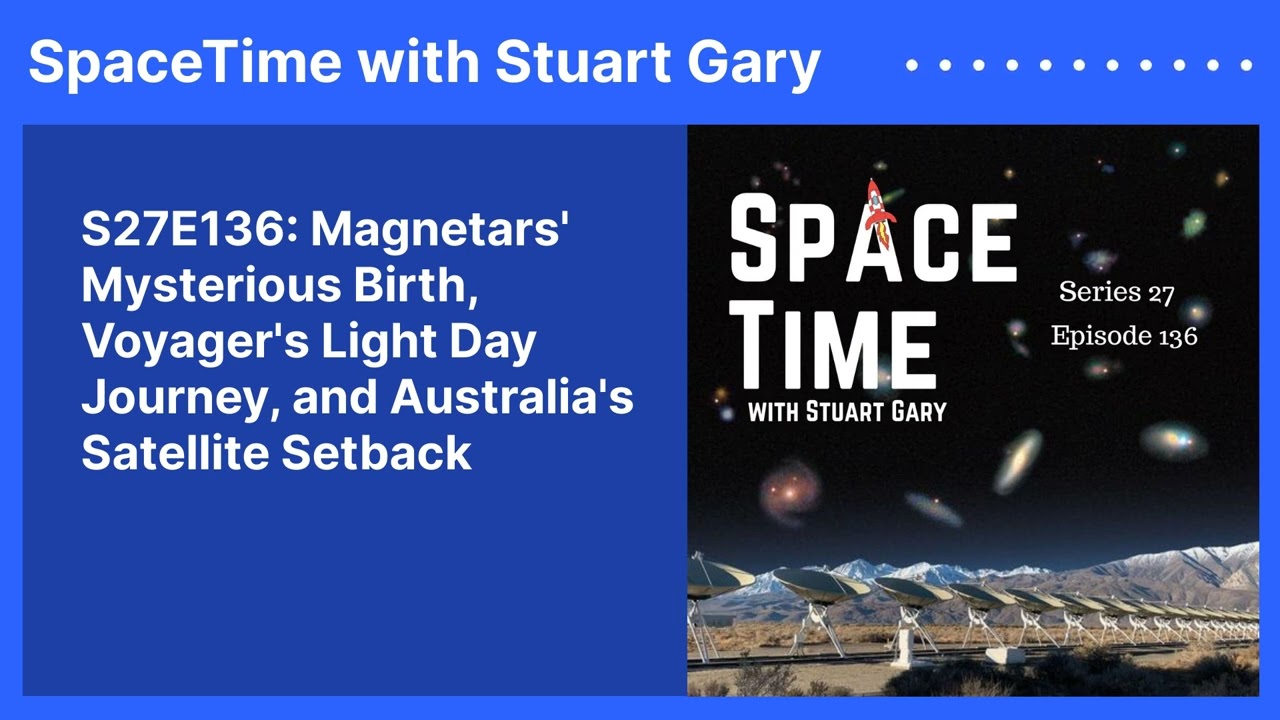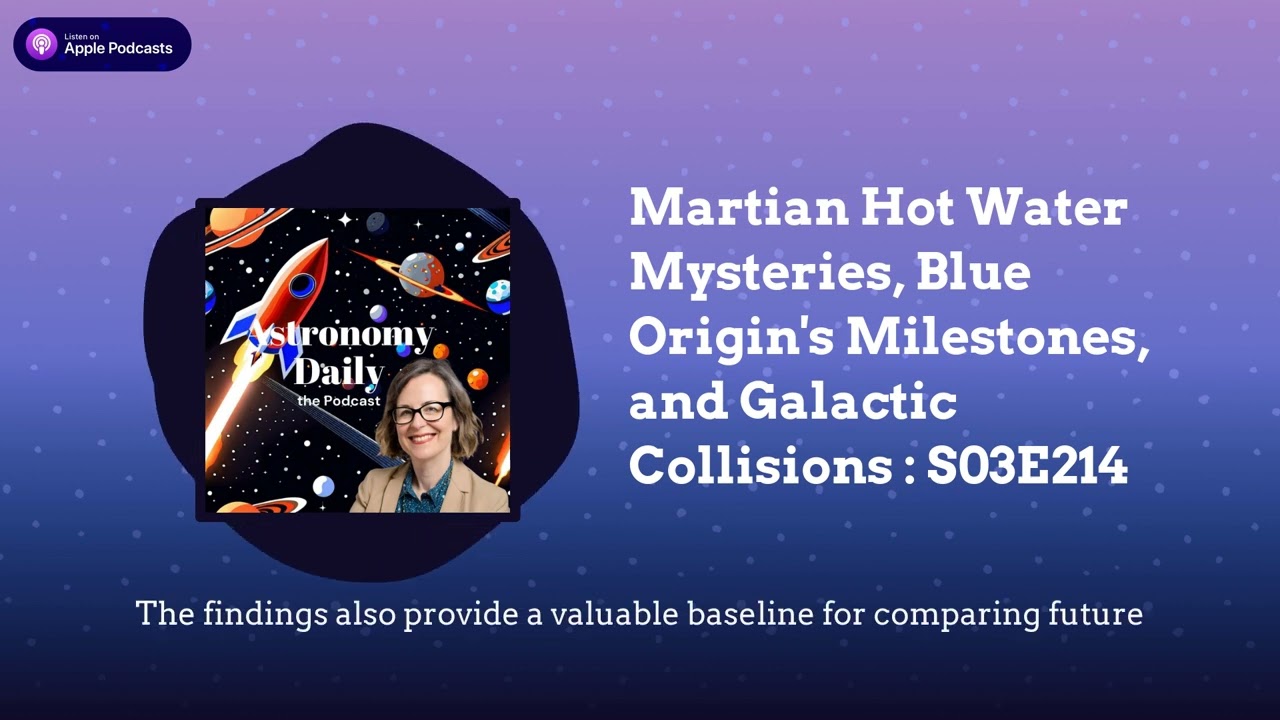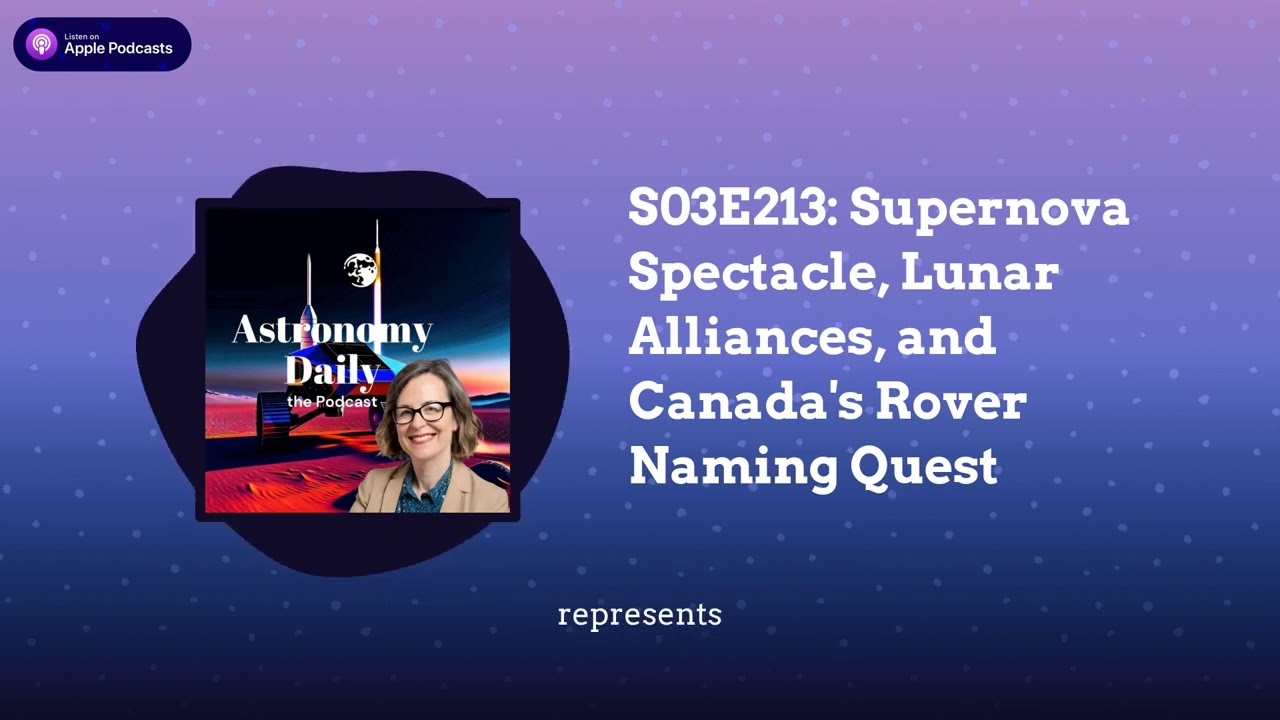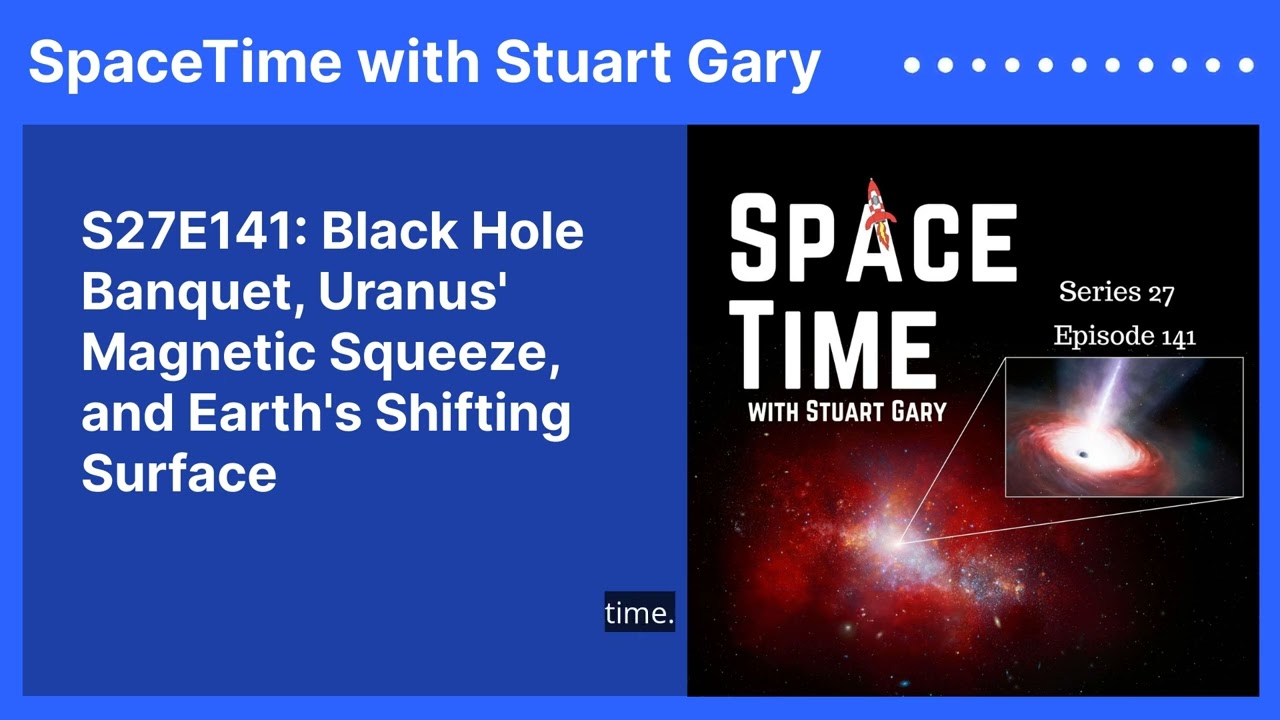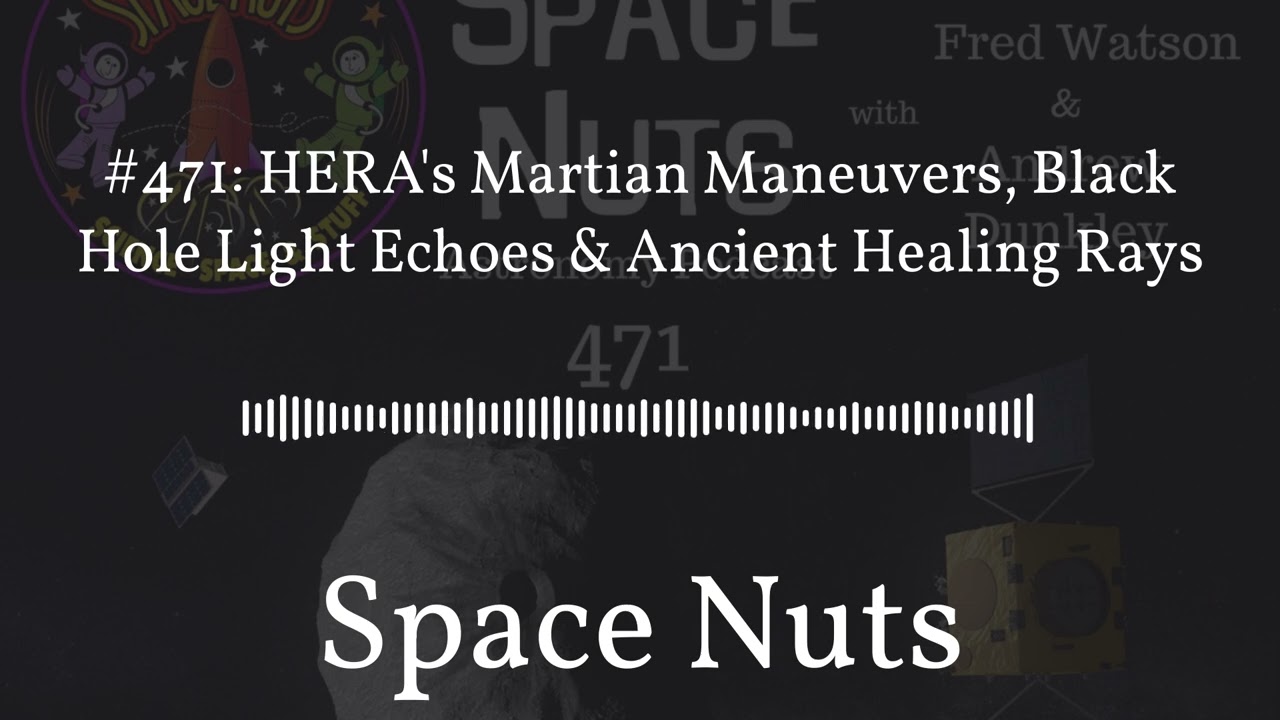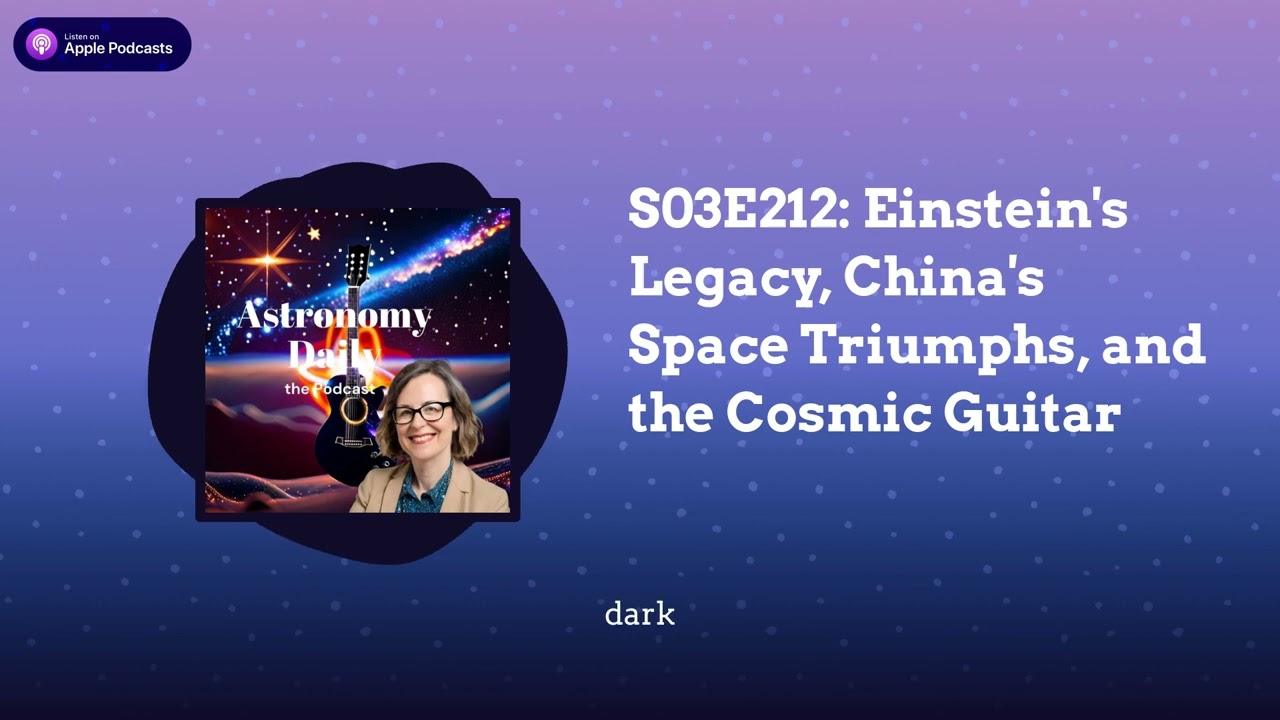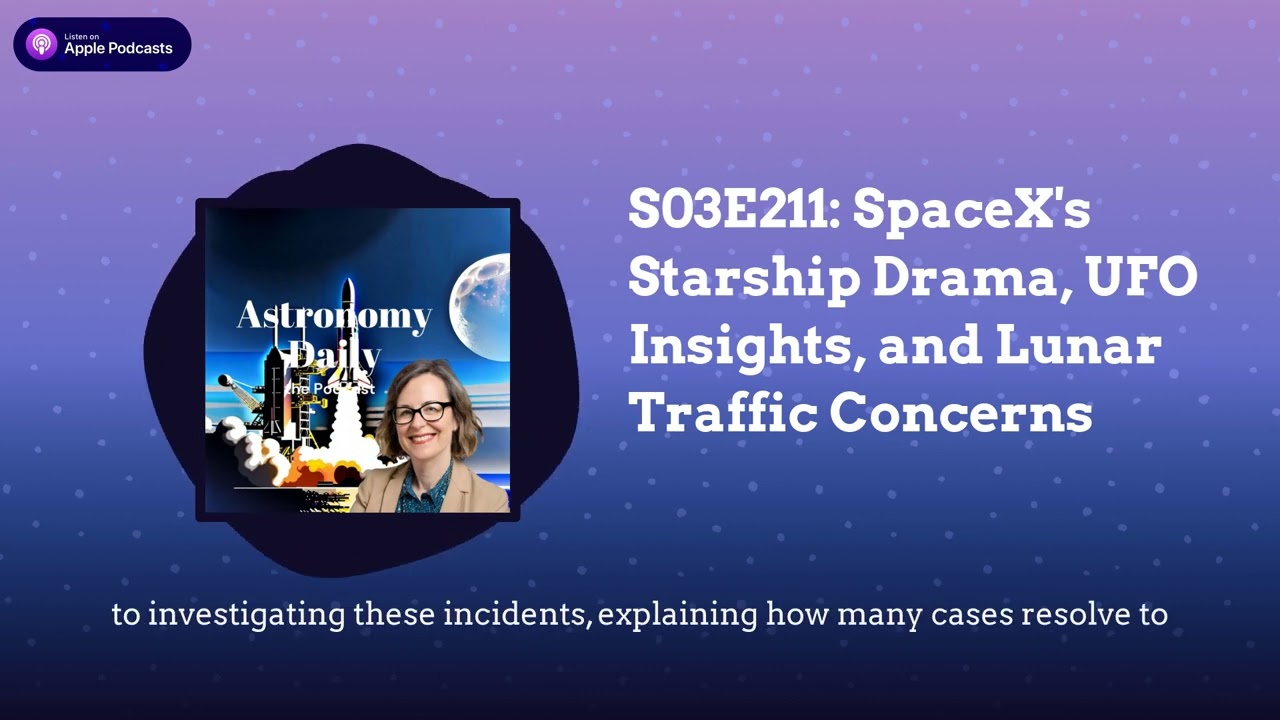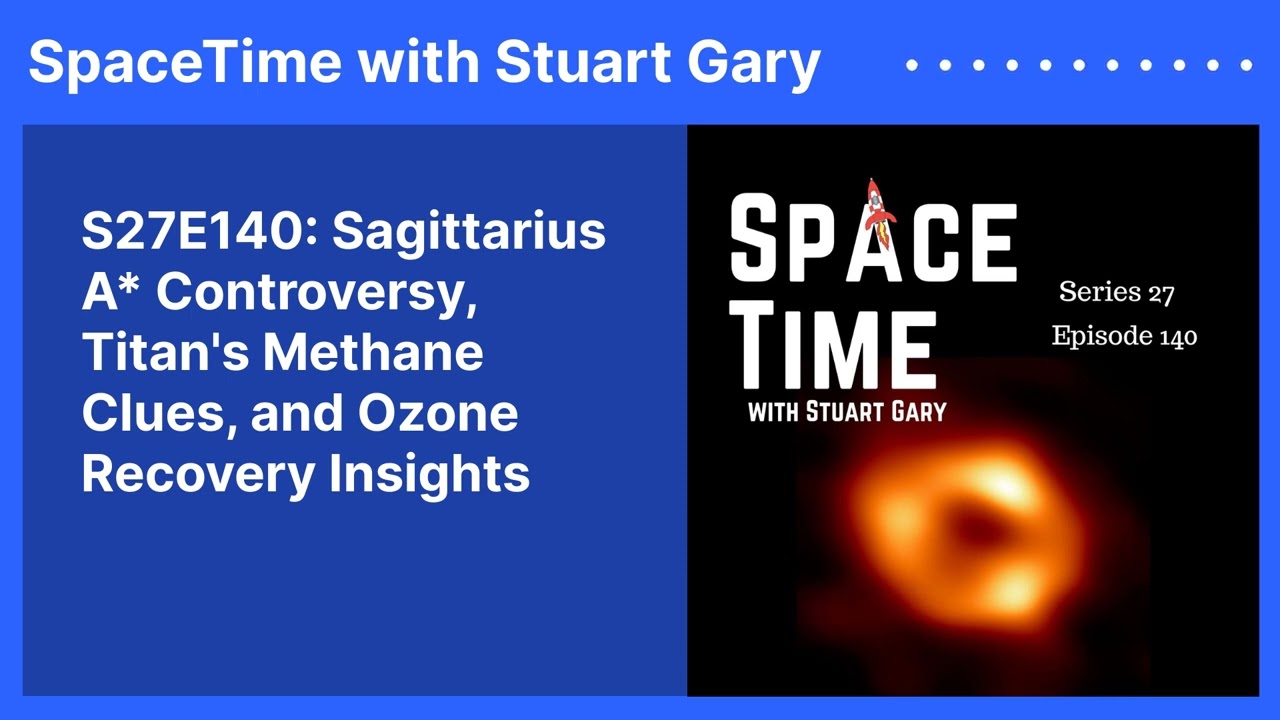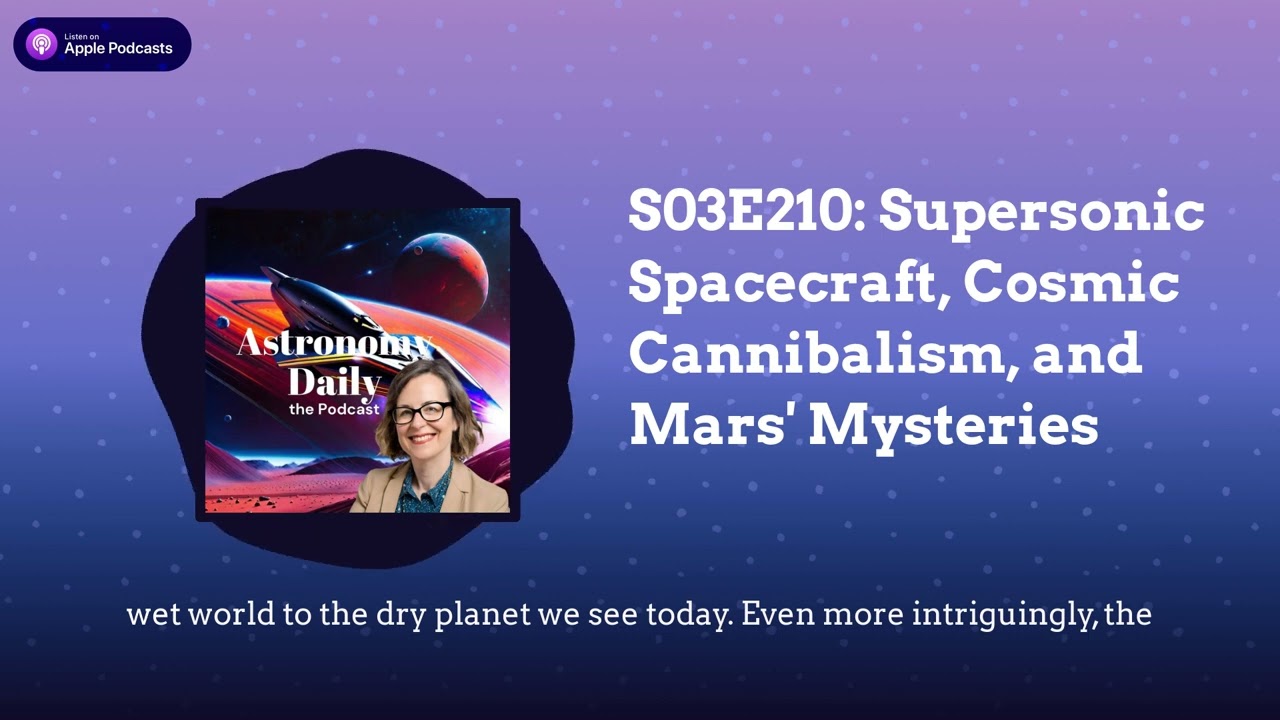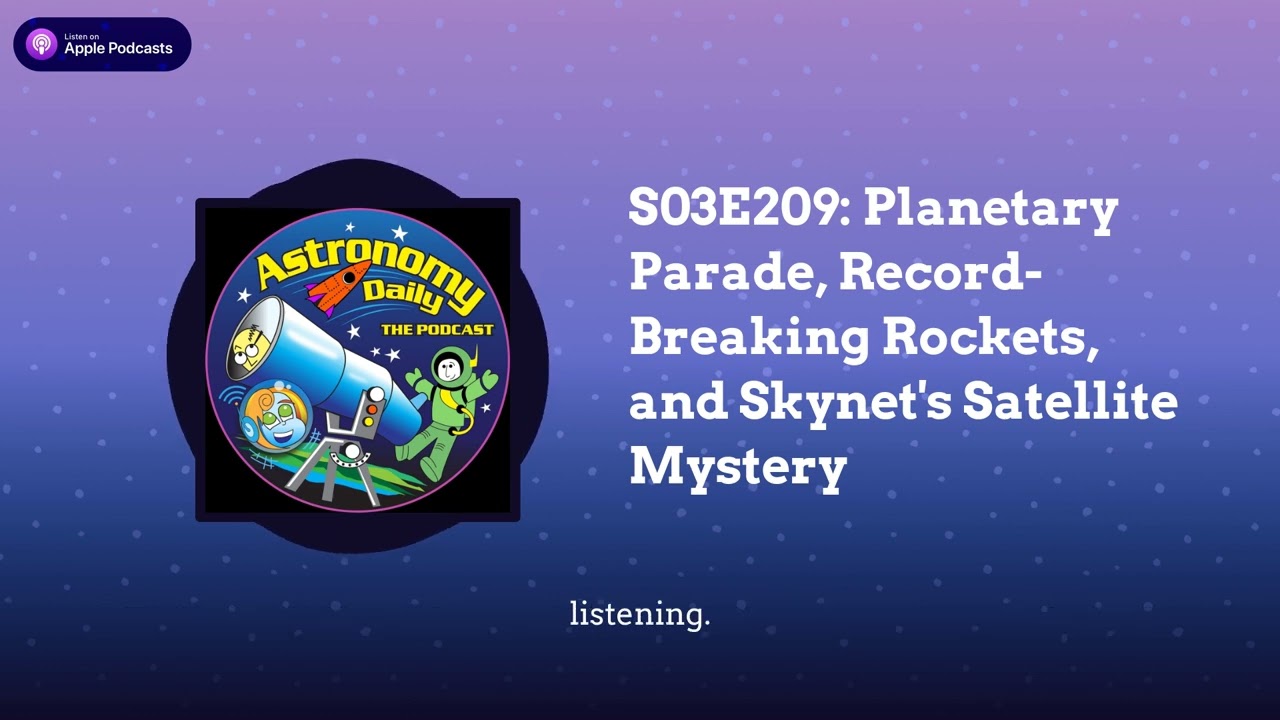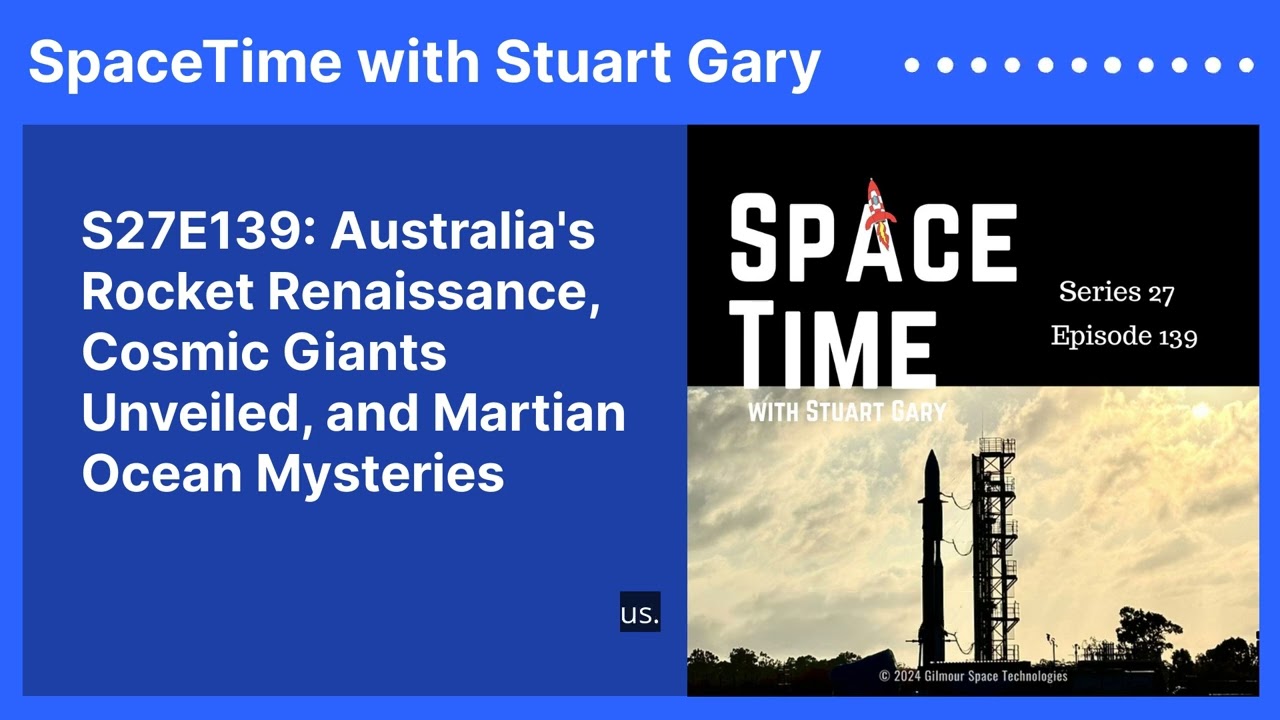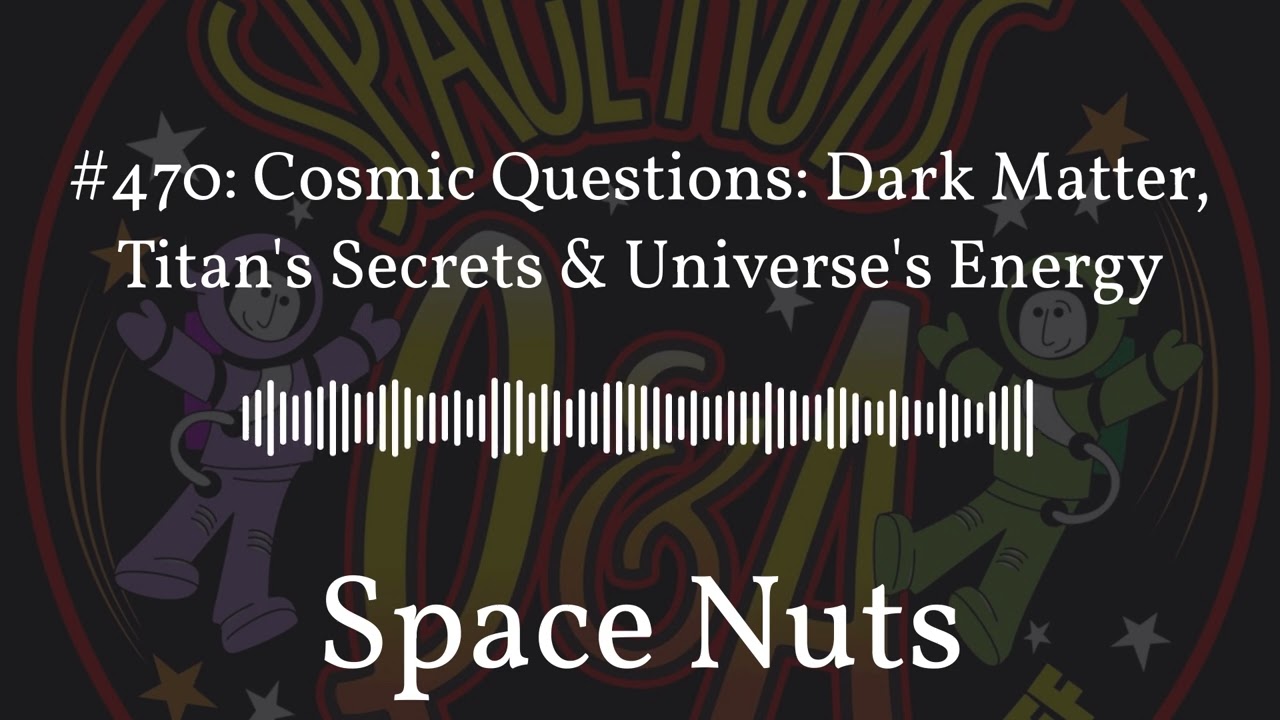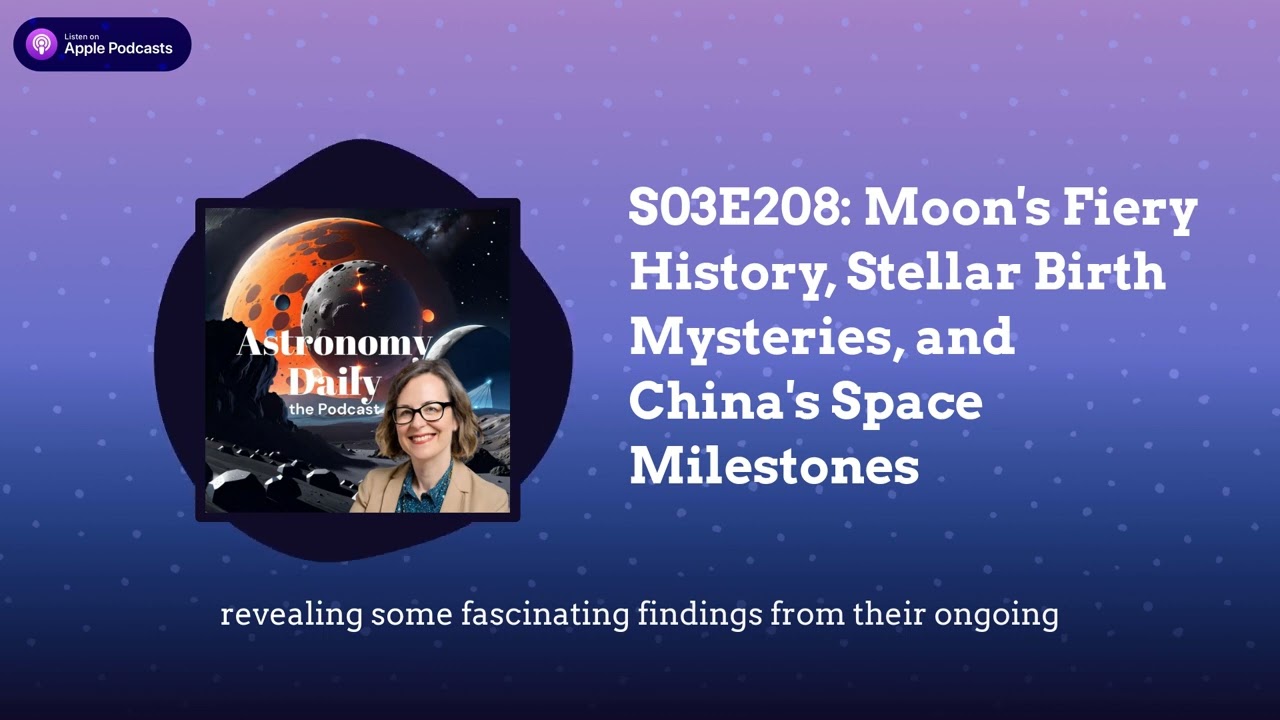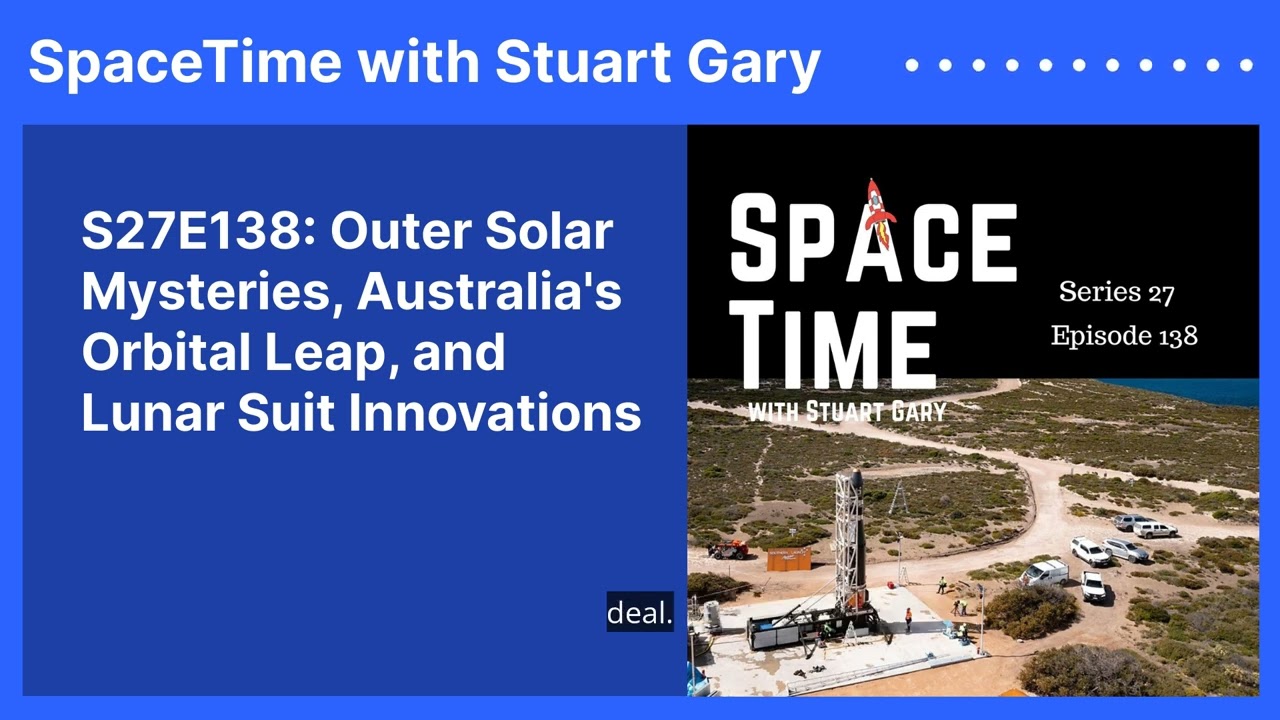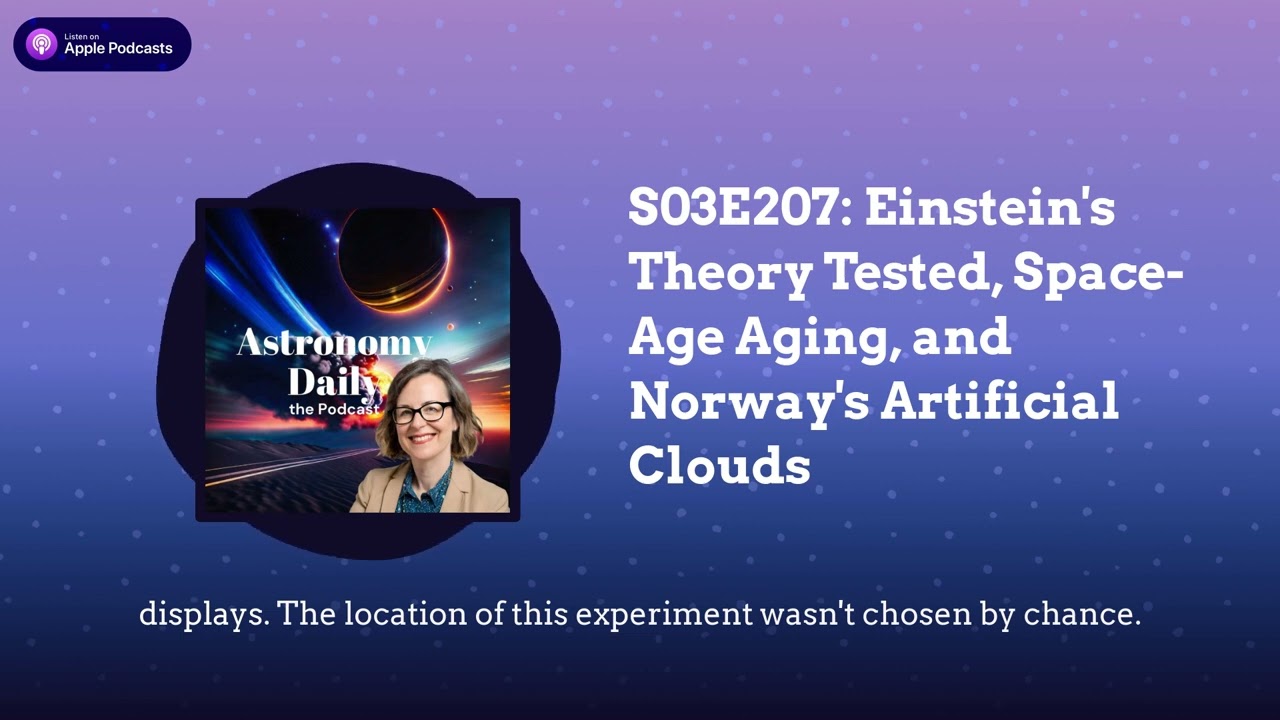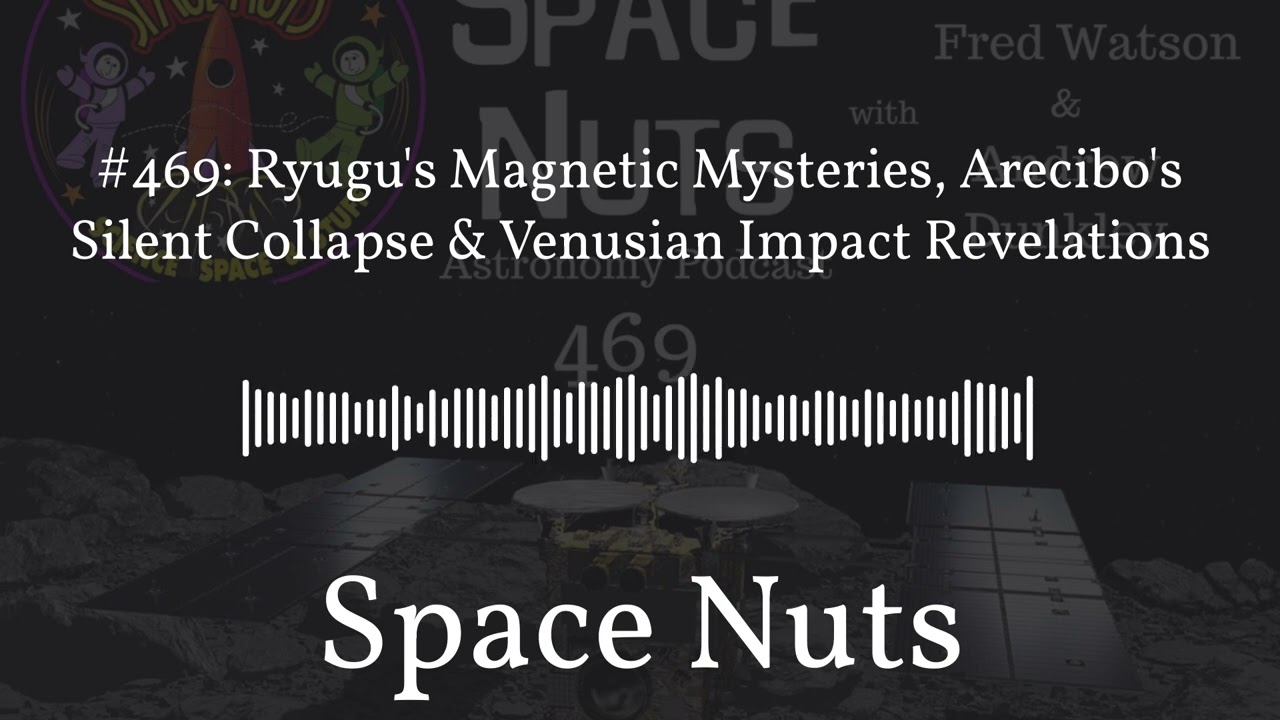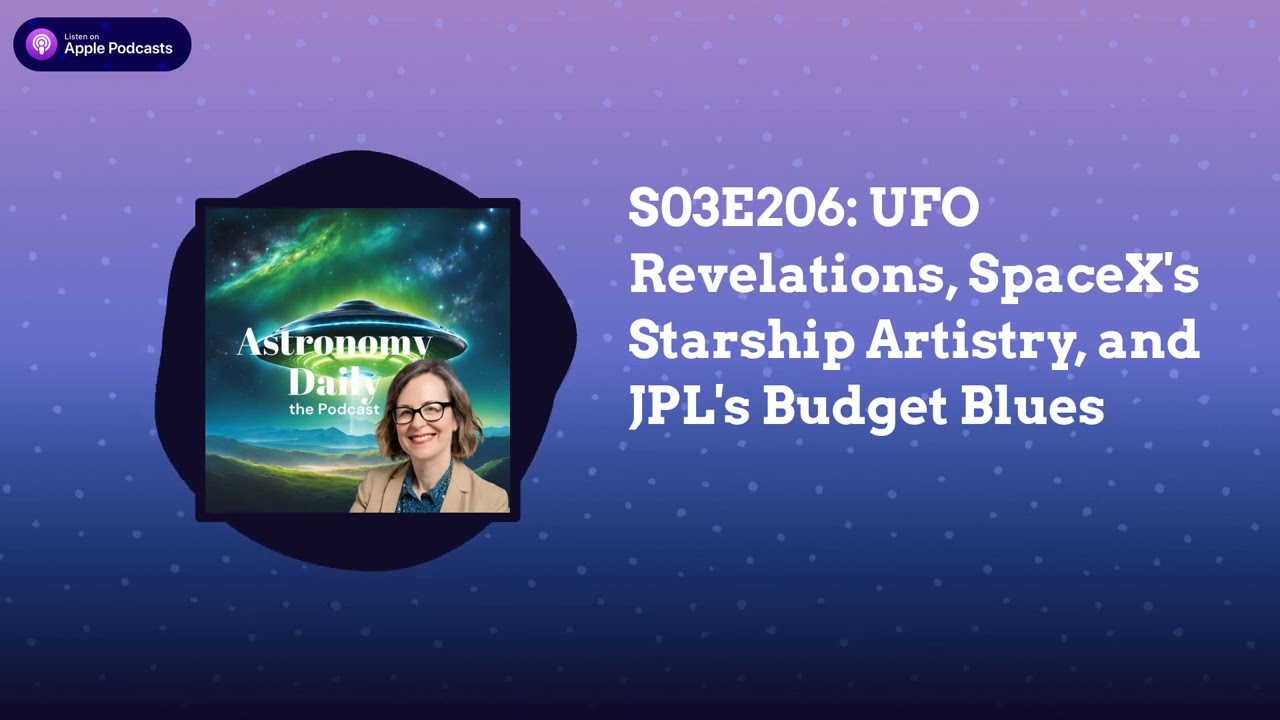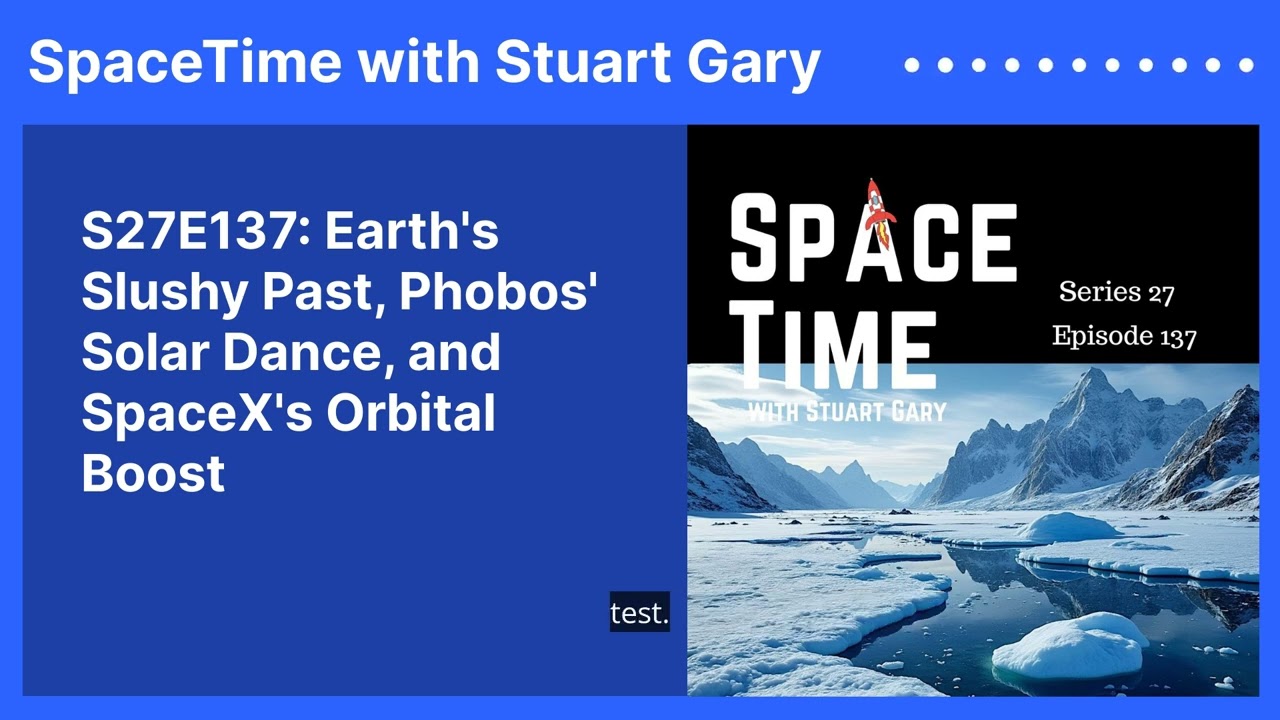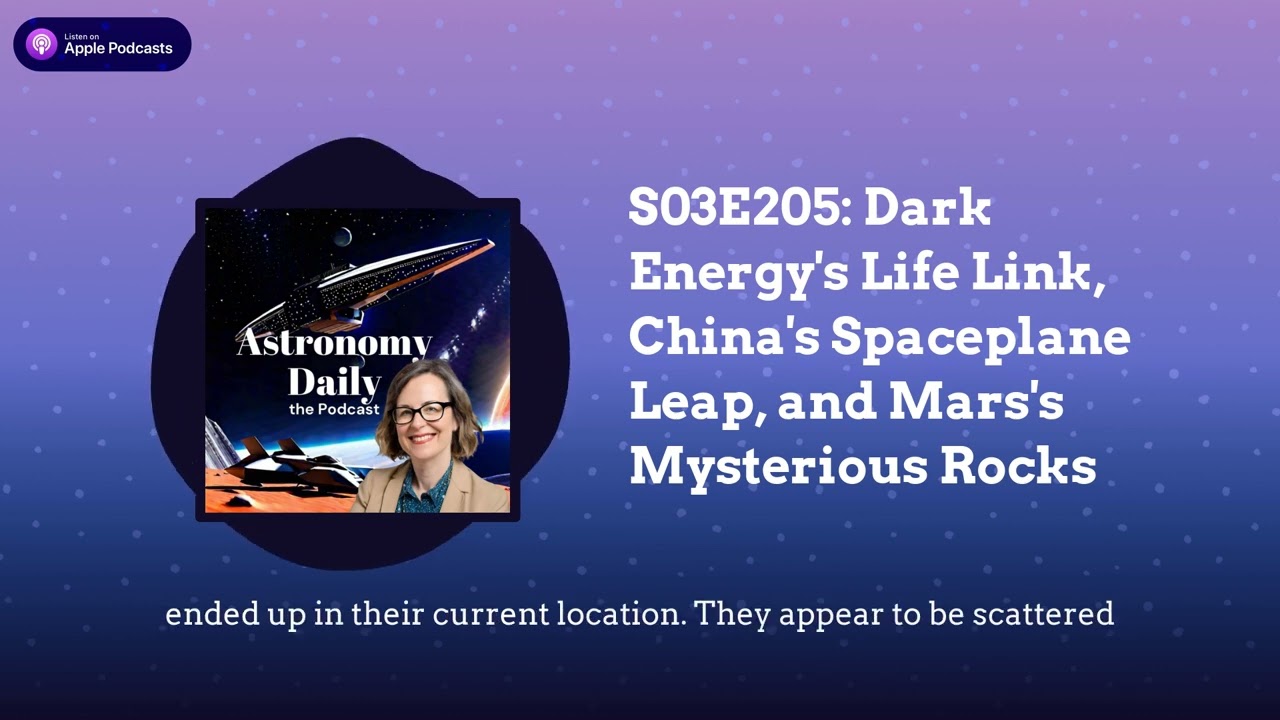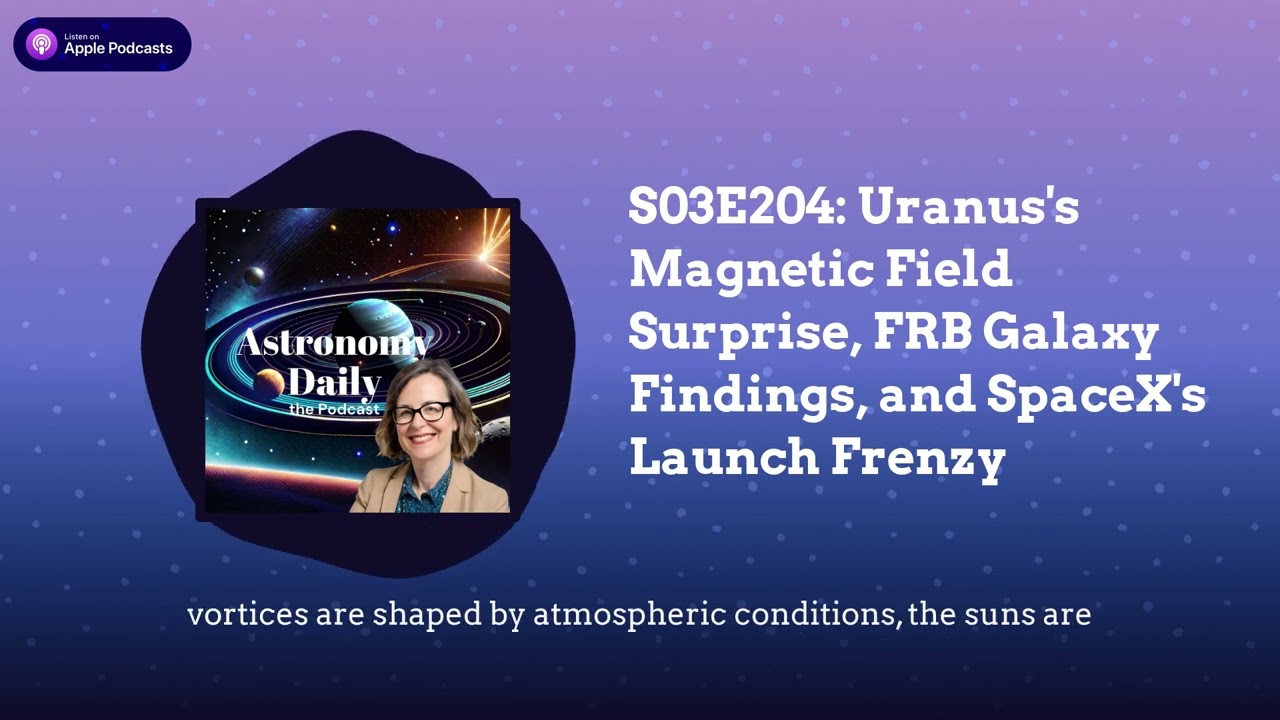S27E136: Magnetars’ Mysterious Birth, Voyager’s Light Day Journey, and Australia’s Satellite Setback
Description
SpaceTime Series 27 Episode 136
*Discovering the Origins of Magnetars
A groundbreaking study reveals that magnetars, highly magnetic neutron stars, are born from stellar mergers rather than single star supernova events. These findings, published in Nature, delve into the origins of fast radio bursts (FRBs), which are high-energy flashes releasing more energy in nanoseconds than half a billion suns. The research indicates that FRBs are more common in massive star-forming galaxies, suggesting a link to magnetars formed from stellar mergers. This discovery challenges previous assumptions about magnetar formation and sheds light on the dynamic processes in the universe.
* Voyager 1 Approaches One Light Day from Earth
NASA's Voyager 1 spacecraft is set to become the first human-made object to travel more than a light day's distance from Earth, a monumental 26 billion kilometers away. This historic milestone is expected in January 2027. Despite recent communication challenges due to a fault protection system glitch, engineers successfully reestablished contact. Voyager 1 and its twin, Voyager 2, continue their journey through interstellar space, providing invaluable data about the cosmos.
* Australia Axes Vital Military Satellite Defense System
In a surprising move, the Australian government has canceled a crucial $7 billion satellite defense project. The JP9102 military satellite communications system, awarded to Lockheed Martin, was intended to enhance Australia's military communications amid growing regional tensions. The decision, amid geopolitical challenges, raises concerns about Australia's defense capabilities and secure communications network.
The Science Robert
A study highlights the significant carbon footprint of private jet users, who generate 500 times more CO2 than the average person. Meanwhile, research identifies 22 pesticides linked to prostate cancer, and a systematic review confirms no link between cell phone use and brain cancer. Plus, a fascinating look at how animals in the wild might consume alcohol from fermented fruits.
www.spacetimewithstuartgary.com (https://www.spacetimewithstuartgary.com)
www.bitesz.com (https://www.bitesz.com)
🌏 Get Our Exclusive NordVPN deal here ➼ www.bitesz.com/nordvpn (https://www.bitesz.com/nordvpn) . Enjoy incredible discounts and bonuses! Plus, it’s risk-free with Nord’s 30-day money-back guarantee! ✌
Check out our newest sponsor - Old Glory (https://www.bitesz.com/oldglory) - Iconic Music and Sports Merch and now with official NASA merch. Well worth a look....
Become a supporter of this Podcast and access commercial-free episodes plus bonuses: https://www.spreaker.com/podcast/spacetime-with-stuart-gary--2458531/support (https://www.spreaker.com/podcast/spacetime-with-stuart-gary--2458531/support)
00:00 This is space Time Series 27, Episode 136 for broadcast on Remembrance Day
00:46 New study suggests highly magnetic neutron stars are born out of stellar mergers
05:06 NASA's Voyager 1 spacecraft lost contact with mission managers on October 18
15:10 Australian government has just axed a crucial $7 billion satellite defense project
17:38 A new study has identified 22 pesticides consistently linked to the incidence of prostate cancer
20:53 A new systematic review confirms there is no scientific evidence that cell phones cause cancer
✍️ Episode References
NASA
[https://www.nasa.gov/](https://www.nasa.gov/)
Caltech
[https://www.caltech.edu/](https://www.caltech.edu/)
Deep Synoptic Array
[https://www.astro.caltech.edu/research/dsa/](https://www.astro.caltech.edu/research/dsa/)
Owens Valley Radio Observatory
[https://www.astro.caltech.edu/ovro/](https://www.astro.caltech.edu/ovro/)
Nature Journal
[https://www.nature.com/](https://www.nature.com/)
Lockheed Martin
[https://www.lockheedmartin.com/](https://www.lockheedmartin.com/)
Australian Defence Force
[https://www.defence.gov.au/](https://www.defence.gov.au/)
UNRWA
[https://www.unrwa.org/](https://www.unrwa.org/)
Jet Propulsion Laboratory
[https://www.jpl.nasa.gov/](https://www.jpl.nasa.gov/)
Episode link: https://play.headliner.app/episode/24020466?utm_source=youtube

